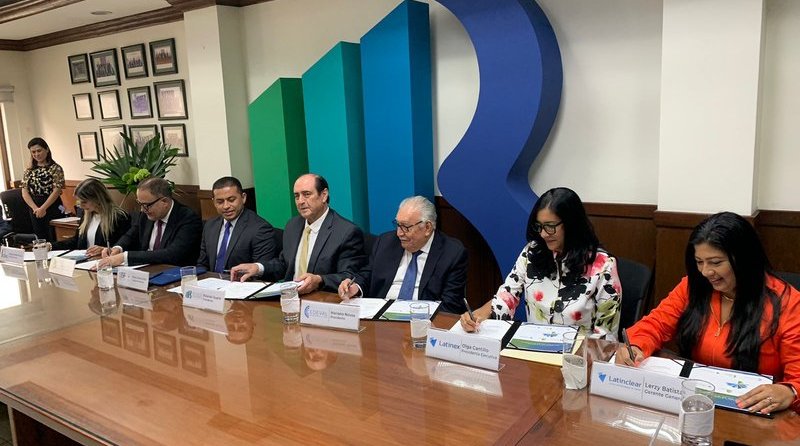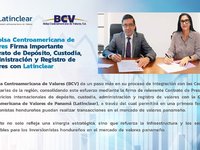Latinex
News

This day the incorporation of Nicaragua into the El Salvador – Panama Integrated Securities Market was formalized, with the signing of the agreement between the Stock Exchanges and Depositories of the three countries. This important event took place at the El Salvador Stock Exchange, receiving representatives of the Stock Exchanges and Depositories of Panama and Nicaragua, and in the presence of authorities from the Superintendency of the Financial System and other representatives of the Salvadoran stock market. In this way, the signature was stamped on this agreement, which represents an important advance for this regional market. Rolando Duarte, president of the El Salvador Stock Exchange, welcomed Nicaragua to this successful market, which in almost 6 years of operations has shown that it works, and which to date has reached more than US$383 million traded in both markets under the figure of remote operator. In addition, he added that “With these integration advances, we are sending a positive message to the entire region and the world, about the power of understanding and cooperation between institutions and countries, in the search to provide solutions to facilitate more business by eliminating geographical barriers. and promote the modernization and growth of the Latin American capital market.” This is an efficient and transparent way of doing stock market business, we make available to participants in the three places, the operational infrastructure that facilitates cross-border operations through remote operators, with the greatest beneficiaries being Salvadorans, Panamanians and now Nicaraguans. , who will have a securities market with greater liquidity, depth and dynamism. Olga Cantillo, executive president of Latinex, comments that “Once the integration between El Salvador, Panama and Nicaragua is activated, we will offer investors an integrated market with securities in circulation for more than US$54 billion, 346 issuers and 49 stock exchanges. We are at different stages with the rest of the countries and we are confident that our efforts will give results in the medium term.” The General Manager of the Nicaragua Stock Exchange, Gerardo Argüello, intervened commenting that “For us, today marks a before and after. With the signing of the agreement our stock market will expand its horizons beyond our borders. Today it is magnified sixty times, in terms of the assets that our investors will potentially be able to acquire through the future Nicaraguan remote operators that will be accredited in El Salvador and Panama. Additionally, opportunities will be expanded for our issuers to place their instruments and finance the growth of their companies, in a more competitive, dynamic and promising space.” It is important to highlight that the stock exchanges are the facilitators of this negotiation process, but there are other important actors for its execution: remote operators, depositories and supervisory entities. Remote operators are the direct executors of cross-border operations and those responsible for energizing the integrated market. The Depositaries guarantee that these cross-border transactions are safeguarded, cleared and settled in accordance with current regulations. And the Superintendencies who, based on recognized jurisdiction agreements, establish all regulations and their compliance, thus guaranteeing that transactions will be adequately supervised in each of the countries. Finally, Valentín Arrieta, in his capacity as president of the Capital Markets Association of the Americas (AMERCA), states that “This event, the arrival of Nicaragua to the regional common market, is the best example that we are moving forward on the right path. towards a real integration between the 10 AMERCA member exchanges. And as a natural result, we will attract a broader group of issuers and investors, who negotiate in an efficient, transparent, regulated market with sufficient information that generates credibility and trust in the markets and the public.



